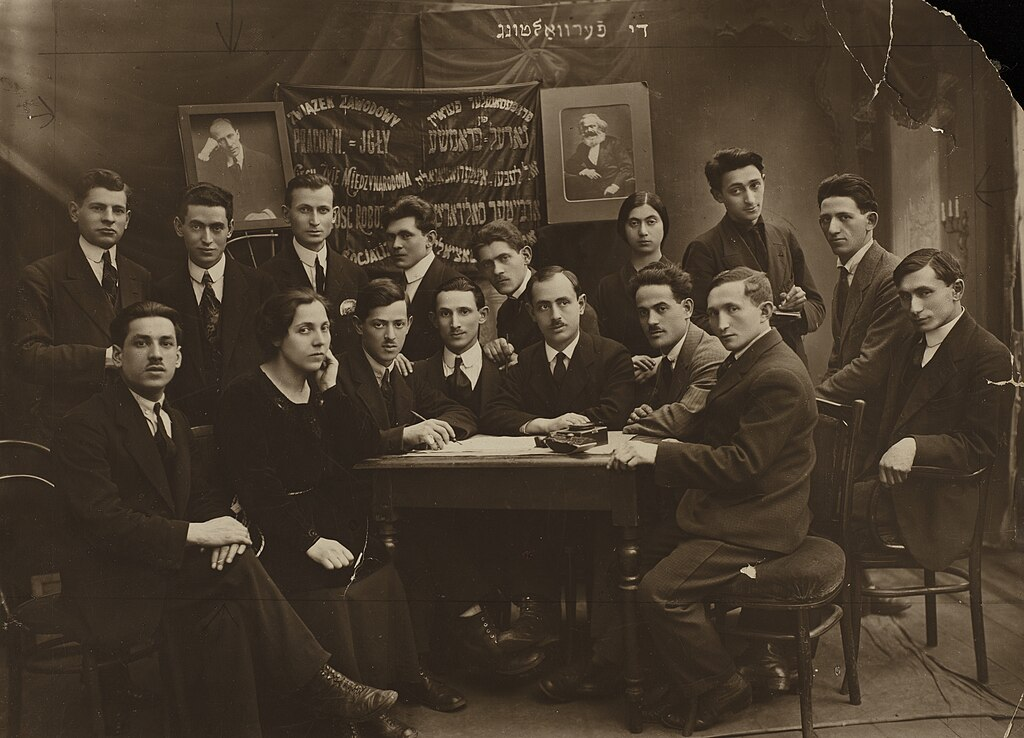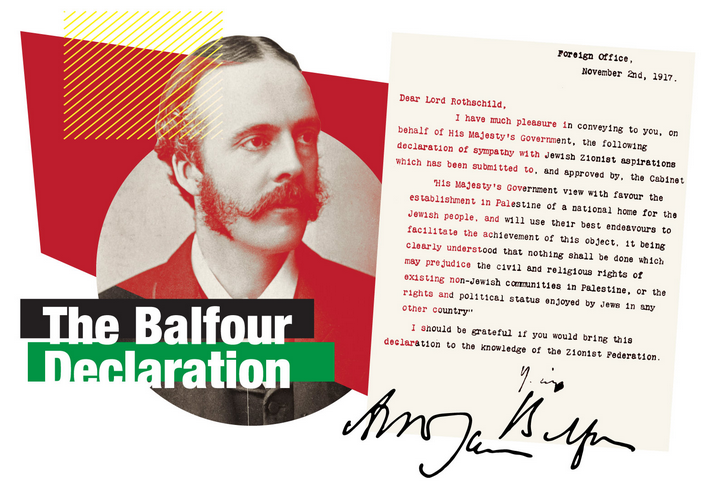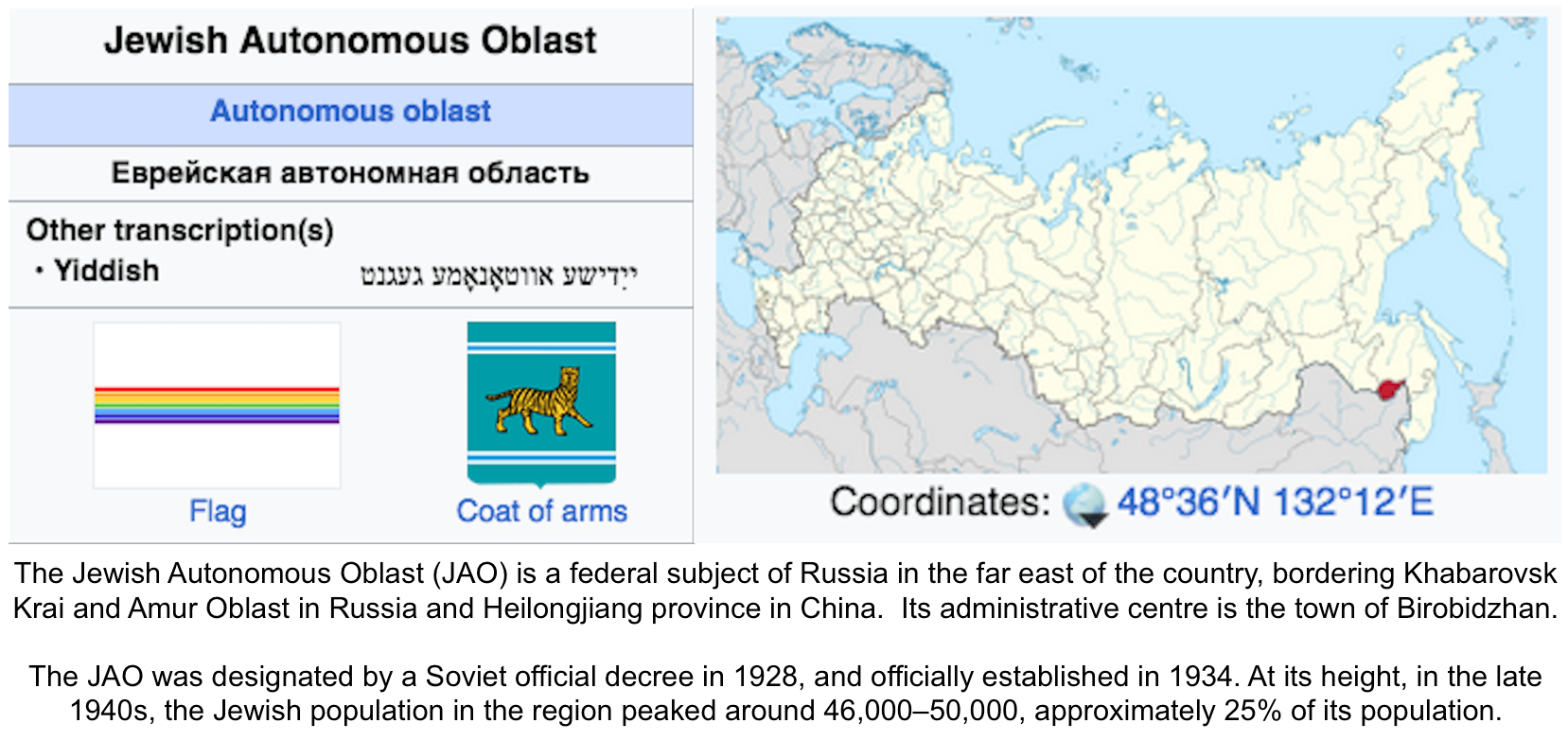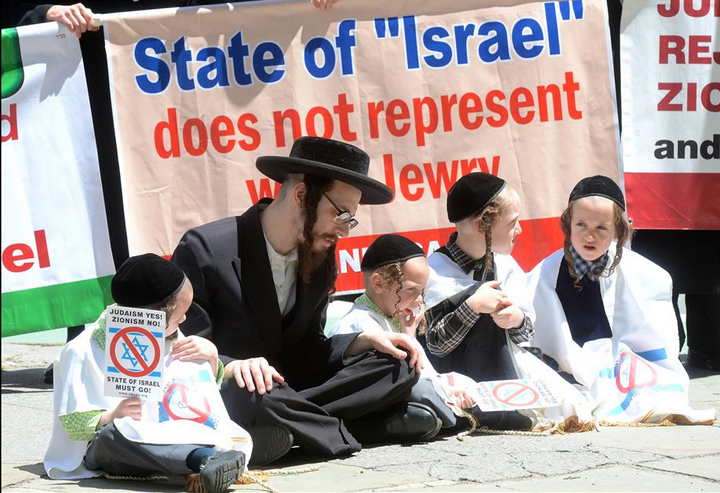The myth of the only Jewish state

Tetleys TLDR: The summary
Israel’s claim to be “the only Jewish state” is false and dangerous. It erases Jewish diversity, ignores that most Jews live outside Israel, and silences Jewish traditions that opposed Zionism. Israel treats Palestinians with the same oppression Jews once faced: segregation, dispossession, and collective punishment. It acts as though international law doesn’t apply, shielded by US power, while weaponising accusations of antisemitism to defend war crimes. This corrupts the fight against real antisemitism and cheapens Jewish suffering. The true lesson of Jewish history is solidarity and equality – “never again for anyone” – a principle Israel has betrayed.
Tetleys TLDR: The article
The over-platformed Israeli talking heads on the media love to brand Israel the only Jewish state. They cling to this phrase as if it were a moral talisman, a licence to behave as they please. But the slogan collapses under even the lightest scrutiny: why? because by tying Jewishness to a piece of contested real estate it erases Jewish diversity, it weaponises trauma, and it masks a state project built on dispossession and violence.
The fact is that Israel is not the guardian of Jewish history; it is the usurper of it.
Zionism was never the sole or inevitable path of Jewish history. For much of the twentieth century it was a minority current, bitterly opposed by others. The Bundists: the Jewish socialist labour movement founded in 1897 in Vilnius rejected Zionism outright. Their slogan was Doykeit (“hereness”): the belief that Jews should fight for equality, socialism, and cultural rights where they lived. In Warsaw, Minsk, and Odessa, Bundists organised schools, unions, militias against pogroms, and even led resistance in the Warsaw Ghetto. They saw Zionism as escapism, a project to abandon the fight against oppression by running to Palestine.
Orthodox communities also rejected Zionism. The Satmar Hasidim and other ultra-Orthodox groups denounced the creation of a Jewish state before the Messiah as heresy. Meanwhile, secular Jewish life thrived across Europe, the Americas, and beyond, without any desire for a Zion. To this day, millions of Jews, religious and secular, refuse the conflation of Judaism with Israel.

Executive Committtee of the Warsaw Garment Workers Union, 1917. Not all organised Jewish political group were or for that matter are Zionist
Demographics don’t lie
Of a global Jewish population of around 15 million, just over 7 million live in Israel. The rest, over half, live elsewhere, with the United States alone home to roughly six million Jews. France, Britain, Canada, Argentina, Germany, Australia, and Russia all have large Jewish populations. Most Jews do not live in Israel, and whilst many Jewish communities have a connection to Israel, Israel does not speak for them.
Inside Israel itself, the demographic picture is equally inconvenient. Around 73–74% of citizens are Jewish. Roughly 21% are Arabs (Muslim, Christian, Druze), and the Druze community alone makes up about 1.5%. A further 5–6% fall into the others category: people of mixed ancestry, non-Arab Christians, and migrants. Israel is not some exclusive Jewish enclave; it is a state with millions of non-Jewish citizens whom it relegates to second-class status.
What about Balfour?
It is often misrepresented that the Balfour Declaration promised a Jewish State in Palestine. In fact, the language of the 1917 letter from Arthur Balfour to Lord Rothschild was far more cautious and deliberately ambiguous. It spoke only of Britain’s support for 'the establishment in Palestine of a national home for the Jewish people' a phrase carefully chosen to avoid the explicit political weight of statehood. The term 'national home' was vague enough to be read in multiple ways, and crucially, the Declaration also carried the caveat that 'nothing shall be done which may prejudice the civil and religious rights of existing non-Jewish communities in Palestine' who at that time formed the overwhelming majority of the population.
The British government itself later clarified that no such promise of sovereignty had ever been made. In 1946, the Anglo-American Committee of Inquiry examined the issue directly and concluded that the demand for a 'Jewish State' was not part of the obligations either of the Balfour Declaration or the League of Nations Mandate under which Britain administered Palestine. The Mandate required only that Britain facilitate the establishment of a Jewish national home, while explicitly safeguarding the rights of the Arab population.
Even within the early Zionist movement, the idea of a 'Jewish State' was not the starting point. At the First Zionist Congress in Basel in 1897, the famous 'Basel Program' did not call for statehood, but instead for 'a home for the Jewish people in Palestine secured under public law'. The wording was a product of careful diplomacy, aimed at winning international recognition without provoking outright opposition from the Ottoman rulers of Palestine or the European powers.

Many prominent Zionist thinkers also resisted the statehood model. Figures such as Judah Magnes, the first Chancellor of the Hebrew University, and philosopher Martin Buber argued instead for a democratic, bi-national state in which Jews and Arabs would share the land as equals. They believed, rightly, that creating an exclusive Jewish state would inevitably fuel conflict and betray the ethical principles on which they thought the Jewish homeland should be built. Even mainstream leaders like Chaim Weizmann often preferred the softer terms 'homeland' or 'commonwealth' rather than demanding explicit sovereignty, depending on the audience they were addressing.
It was only in the 1940s, particularly under the leadership of David Ben-Gurion, that the Zionist movement shifted decisively toward demanding an independent Jewish state, a position reinforced by the horrors of the Shoah and the impending end of British rule in Palestine. The UN Partition Plan of 1947 and the subsequent declaration of the State of Israel in 1948 marked the realisation of this vision. But it is important to remember that this was not what the Balfour Declaration promised, nor what Britain had ever formally committed to deliver. The myth that Balfour 'gave away' Palestine to form a Jewish state is a retroactive construction, one that has been used ever since to legitimise the dispossession of the Palestinian people. The historical record shows something quite different: a vague promise, hedged with caveats, which Zionist leaders later transformed into the claim of a guaranteed right to statehood. Recognising this distinction matters, because it reveals how political narratives have been manipulated to serve power, and how the Palestinians were written out of their own history by sleight of hand.
Israel wasn’t the first
Israel wasn't the first C20th Jewish homeland experiment. In 1934, Stalin established the Jewish Autonomous Oblast in the Soviet Far East, with its capital in Birobidzhan. Yiddish was promoted, Jewish institutions were built, and it was designed as an alternative to Palestine. Though the project faded, it proves the point: Zionism was not destiny. It was one option among many, and it was the option built on colonisation and dispossession.

Repeating the crimes once done to Jews
Even if you granted the idea of a Jewish state, you might expect it to embody the lesson of Jewish history: never again should a people be persecuted, ghettoised, stripped of rights, or targeted for who they are. Instead, Israel has twisted never again into never again for us, but permissible against Palestinians.
- Gaza is a concentration camp, where civilians are bombed, starved, and denied movement.
- The West Bank is carved up by walls, checkpoints, and ever-expanding settlements.
- Inside Israel proper, Palestinian citizens live under laws that explicitly deny them equality: the Nation-State Law says only Jews have the right to self-determination.
It is the same logic Jews once suffered in Europe: segregation, collective punishment, and humiliation enforced by law. You don't fight a monster by becoming one yourself.

Eretz Israel: the logical conclusion of Zionism and the Game Netanyahu is playing in plain sight. Anyone who says they are supporting a two-State solution, yet still supports Israeli action is either naive, a liar or a fucking idiot.
Eretz Israel
Benjamin Netanyahu has long used the myth of Eretz Israel, the biblical 'Greater Israel' stretching from the river to the sea, as both a shield and a weapon. He invokes it not as theology but as political cover, wrapping expansionist policies in the language of destiny. The idea of Eretz Israel becomes his alibi for illegal settlements, land grabs, and the permanent subjugation of Palestinians. It allows him to cast colonisation as heritage, annexation as patriotism, and apartheid as security. In Netanyahu’s hands, Eretz Israel isn’t scripture, it’s a real estate brochure soaked in blood, sold to his base as divine entitlement while the world looks on in disgust.
This is the playbook Netanyahu is running in real time: when he stands before the UN or a sympathetic audience and flashes a map of 'Israel' that sprawls deep into Lebanon, Syria, Jordan and the whole of Palestine, it is not some cartographic slip or careless flourish. It is a deliberate act of propaganda, a softening-up exercise to make borders seem negotiable, neighbours appear illegitimate, and conquest look inevitable. By normalising maps of an Israel that engulfs others, he is rehearsing the occupation in plain sight turning fantasy into policy, and policy into 'facts on the ground'. Every line he redraws is a message: that the very existence of Palestinians and surrounding states is provisional, while his expansionist vision is permanent.

Law ignored, law inverted
Take these three clear examples:
The Nation-State Law (2018): This Basic Law enshrined Jewish supremacy as the constitutional order of Israel. It states that the right to exercise national self-determination in the State of Israel is unique to the Jewish people. Arabic, once an official language, was downgraded. Palestinian citizens, one fifth of the populatio, were legally defined as outsiders in the land of their birth. This isn’t a quirk of policy; it is apartheid written into law.
UN Security Council Resolution 242 (1967): Passed unanimously after the Six-Day War, it requires Israel to withdraw from the territories it occupied. That’s Gaza, the West Bank, East Jerusalem, the Golan Heights. For nearly six decades, Israel has flouted this binding resolution while expanding settlements and annexing land all in open breach of international law.
International Court of Justice rulings: In 2004, the ICJ ruled that Israel’s separation wall in the West Bank was illegal and should be dismantled, with compensation paid to Palestinians. In 2024, the Court affirmed that Israel’s occupation itself is unlawful and must end as rapidly as possible. Israel’s response? Dismissal, mockery, and intensification of the very policies condemned.These aren’t marginal debates or contested interpretations. They are pillars of international law, ignored with impunity. And every time Israel shrugs off a ruling, every time it mocks a UN resolution, it strengthens the case against it. Because the more law it breaks, the clearer the picture becomes: this is not a state seeking justice, security, or peace, but one that believes itself above the very order that was supposed to ensure never again meant never again for all.
A state above the law
And here lies the core of Israeli arrogance: the belief that international law does not apply to it. The Geneva Conventions? The Rome Statute? UN Security Council resolutions? All dismissed as biased or antisemitic the moment they touch on Israel’s conduct. Bombing hospitals and schools in Gaza, annexing land in the West Bank, collective punishment, these are clear breaches of international law. Israel shrugs. Like the little mouthy kid in the school yard that starts a fight knowing the big lads will finish it, it knows the United States will wield its veto at the UN and Britain and the EU will mutter platitudes while carrying on business as usual.
This arrogance is systemic. Israeli leaders boast of their military superiority, their ability to act with impunity, their contempt for the International Court of Justice and the International Criminal Court. They behave as though Jewish history, something they should have learned from, gives them a permanent exemption from the rules that bind other states. It is a grotesque inversion: the memory of Jewish persecution, used not as a shield for justice, but as a hammer against Palestinians.

Antisemitism as a sword
And there is one final obscenity: the use of antisemitism not as a shield, but as a sword. Antisemitism is real, lethal, and has scarred Jewish existence for centuries. Pogroms, ghettoisation, deportations, and extermination were not abstractions, they were lived realities, culminating in the Holocaust.
In the wreckage of 1945, a fragile consensus was built: antisemitism must never again be tolerated, excused, or allowed to fester. It was this principle, etched into the post-war order, that gave rise to new human rights laws, the Genocide Convention, the Refugee Convention, the very idea of universal protection. Israel has corrupted that consensus. Every time it flattens a neighbourhood in Gaza or bulldozes a home in Hebron, and then smears critics as antisemites, it turns a historic shield into a cynical weapon and by doing so weakens its potency. It is no longer about protecting Jews from hatred, it is about silencing anyone who dares speak against apartheid, occupation, and war crimes.
This inversion is not just dishonest; it is dangerous. Because if antisemitism becomes nothing more than a rhetorical bludgeon wielded by a state to protect its crimes, the concept itself is hollowed out. Real antisemitism: the hatred that attacks Jews in Paris, New York, London, or Warsaw is trivialised. The moral clarity of never again is muddied by political manipulation. And in doing so, Israel weakens the very thing it claims to defend. Using antisemitism as a sword cheapens Jewish suffering, delegitimises genuine struggles against hatred, and erodes the universal solidarity that was supposed to define the post-war world. It is a betrayal not only of Palestinians, but of Jews everywhere who know full well that their safety cannot be built on lies, smears, and the permanent subjugation of another people.
The truth
So when Israel declares itself the only Jewish state, the response should be blunt:
- You are not the only expression of Jewish life.
- You do not speak for the global Jewish people.
- You were not the first, nor are you the only possible model.
- And you are not above the law.
Israel is not and never has been the guardian of Jewish history; it is the usurper of it. It has learned nothing from the suffering of Jews in Europe, except how to inflict it on others with tanks, drones, and an occupying army.
The real lesson of Jewish history was solidarity, equality, and universal justice. Never again for anyone, irrespective of whether they are Jewish or not. Israel has spat on that principle, and in doing so has shamed the very history it claims to defend and declared itself an outlier from Jewish thought, Jewish culture and even Jews who would otherwise defend the so called only Jewish state, if it weren't so brutal.
A bit of shameless self-plugging here. This is www.TetleysTLDR.com blog. It's not monetised. Please feel free to go and look at the previous blogs on the website and if you like them, please feel free to share them.



